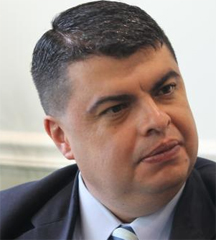SAN JOSE, (Reuters) – Costa Rica’s parliament approved a new security tax on businesses late on Thursday as part of Central American efforts to improve funding for a crackdown on marauding drug cartels.

The levy is expected to generate an extra $70 million a year to help Costa Rica, which has no army, equip police with better surveillance technology, vehicles, guns and bullet-proof vests, said Public Security Minister Mario Zamora.
Firms will pay $300 annually but thousands of smaller companies will be exempt, the government said.
Central America is scrambling to finance a squeeze on cash-laden drug gangs carving bloody trails in the isthmus. The region is a major transshipment point of South American cocaine smuggled north to the United States by Mexican cartels.
Under attack in Mexico from the government, drug traffickers have pushed operations deeper into Central America, corrupting officials and exporting their brutal methods like extortion, kidnapping and decapitation of civilians.
Costa Rica has avoided the worst of the violence so far but authorities are alarmed by recent crimes, including a spike in contract killings they blame on drug gangs.
Honduras, wracked with the region’s highest murder rate, approved a security tax in June on several industries although it later made exemptions for some sectors such as mining.
Violent crime costs the region sums equal to 8 percent of gross domestic product, posing risks to future economic growth and damaging competitiveness, according to studies.
U.S. Secretary of State Hillary Clinton told leaders of the region at a June security conference in Guatemala that weak tax collection is crippling efforts to deal with security threats.




